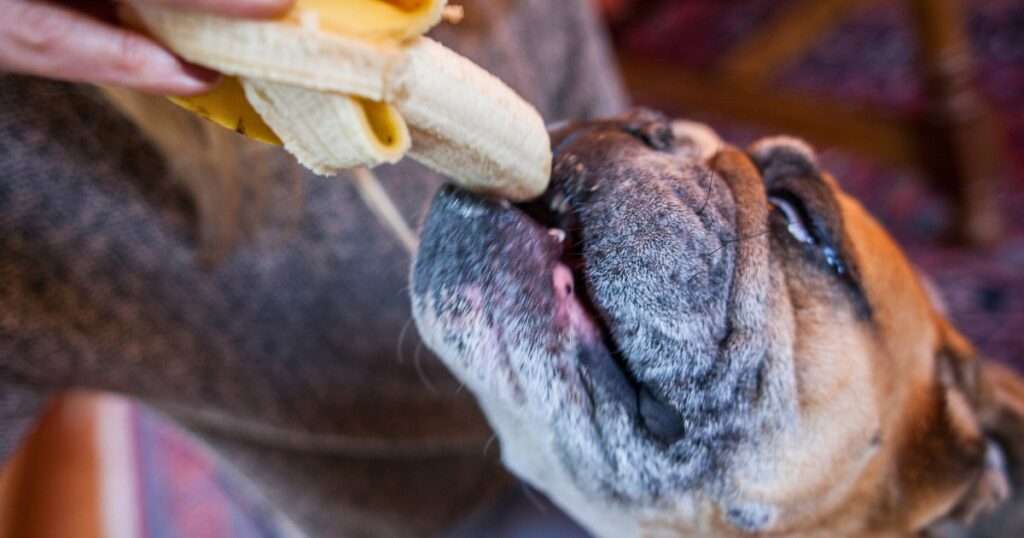Note: Prior to introducing any new foods, particularly those meant for human consumption, consult your veterinarian to ensure they are suitable for your dog. The appropriateness of a particular food can vary based on factors such as your dog’s age, health history, existing health conditions, and dietary needs. It is crucial to refrain from providing any food or treats beyond the prescribed diet for dogs on specialized diets.
Bananas are a popular and nutritious fruit enjoyed by humans around the world. Their sweet taste, convenience, and abundance of health benefits make them a go-to snack for many. As pet owners, it’s natural to wonder whether our canine companions can also partake in this tasty treat. So, can dogs eat bananas? Let’s delve into the benefits and risks associated with feeding bananas to dogs.
The Benefits of Bananas for Dogs
Rich in Nutrients
Bananas are a good source of essential nutrients such as potassium, vitamin C, vitamin B6, and dietary fiber. These elements contribute to overall health and can be beneficial for dogs, just as they are for humans.
Natural Energy Boost
The natural sugars in bananas – fructose, glucose, and sucrose – can provide a quick and healthy energy boost. This can be particularly useful for active dogs, such as those involved in agility training or long walks.
Supports Digestive Health
Bananas contain soluble fiber, which aids in maintaining a healthy digestive system. Introducing small amounts of banana into a dog’s diet can assist in regulating bowel movements and preventing constipation.
Low in Fat and Cholesterol
Unlike some human snacks, bananas are low in fat and cholesterol. This makes them a heart-friendly treat for dogs, especially those with weight management concerns.
The Risks of Bananas for Dogs
High Sugar Content
While the natural sugars in bananas can provide a quick energy boost, it’s important to be mindful of the overall sugar content. Excessive sugar intake can lead to weight gain, dental issues, and, in rare cases, contribute to conditions like diabetes.
Portion Control is Key
Moderation is key when it comes to feeding bananas to dogs. Too much of any treat, including bananas, can upset a dog’s stomach and potentially lead to diarrhea.
Allergies and Individual Sensitivities
Dogs, like humans, can have individual sensitivities and allergies. Before introducing bananas into your dog’s diet, it’s advisable to start with small amounts to monitor for any adverse reactions, such as itching, digestive upset, or changes in behavior.
Avoid the Peel
While the banana itself is generally safe for dogs, the peel can be harder to digest and may cause gastrointestinal issues. It’s recommended to remove the peel and offer only the ripe fruit in small, manageable pieces.
Conclusion
In conclusion, dogs can indeed eat bananas in moderation, and there are several health benefits associated with this fruit. However, it’s crucial to be aware of potential risks, such as the high sugar content and the importance of portion control. As with any new addition to your dog’s diet, it’s wise to consult with your veterinarian to ensure that bananas are a suitable and safe option for your individual furry friend. When introduced responsibly, bananas can be a delicious and nutritious occasional treat for your canine companion.

